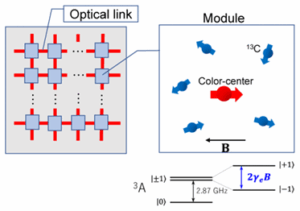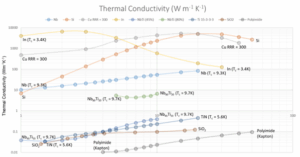25.07.2025Open Position MEP/BEP
Open position MEP: Superconducting interconnects for spins in diamond and cryo-CMOS
Ryoichi Ishihara
Associate Professor, Group leader
Qutech, Dep. Quantum and Computer Engineering, Faculty of Electrical Engineering, Mathematics and Computer Science, Delft University of Technology
Ishihara-lab focuses on the integration technologies for unconventional electronic systems; quantum computers, quantum sensors, neuromorphic computers, and biodegradable sensors. Our work involves new materials, scalable fabrication of electronic and photonic devices, and 3D heterogeneous integration, aiming to realize unconventional electronic systems.
Superconducting interconnects for spins in diamond and cryo-CMOS
Current research on quantum computer chips have been focused on scaling the total number of qubits to enable advanced quantum algorithms and truly unlock the full potential of quantum computers. Modular quantum computer chips is an approach based on optical links between individual modules, each with a single quantum bit, or qubit. This enables high connectivity between modules with low crosstalk [1]. Each module has a single color-center in diamond with an electron spin (spin qubit) and an integrated photonics chip with several optical links to other modules. A cryo-CMOS chip provides the classical analog and digital electronic framework to control multiple modules.

Figure 1. – Diagram of a modular quantum computer chip [1].

Figure 2. – Schematic representation of the 3D integration of a cryo-CMOS chip and an integrated photonics chip via an Indium solder bump. Other materials will be investigated.

Figure 3. – Thermal conductivity and critical temperature of several materials.
The results of this research will be crucial to scaling the number of spin qubits in diamonds and to the overall development of the quantum computer field. Students who are interested in material sciences with a strong interest in micro fabrication in the cleanroom are encouraged to apply, as this will be a terrific opportunity to get familiar with several processes routinely used in the microelectronics industry.
References:
[1] Ishihara, R., Hermias, J., Neji, S., Yu, K.Y., Van Der Maas, M., Nur, S., Iwai, T., Miyatake, T., Miyahara, S., Kawaguchi, K. and Sato, S., 2023, May. 3D Integration for Modular Quantum Computer based on Diamond Spin Qubits. In 2023 IEEE International Interconnect Technology Conference (IITC) and IEEE Materials for Advanced Metallization Conference (MAM)(IITC/MAM) (pp. 1-3). IEEE.
Interested? Please contact Ryoichi Ishihara r.ishihara@tudelft.nl or Wagno Bragança <W.Braganca@tudelft.nl>